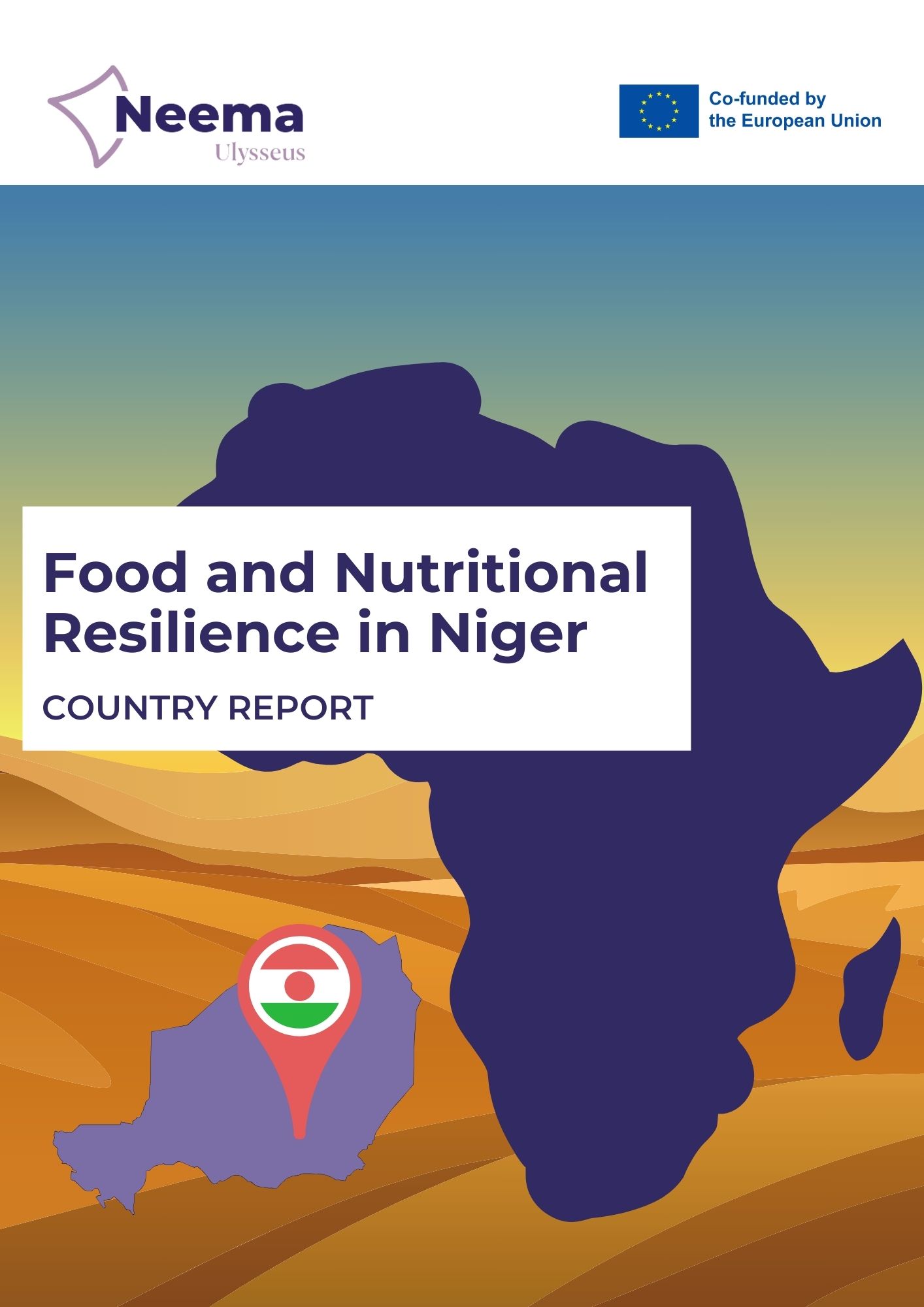NEEMA Food and Nutritional Resilience in Niger
The study identifies structural issues such as underinvestment in agriculture, limited access to resources, and poor governance in rural sectors. While several public policies exist, their effectiveness is hampered by a lack of coordination and resources, with gaps in legal frameworks related to food security. Despite these obstacles, Niger has demonstrated political will and possesses significant assets, including arable land and water resources. However, improving resilience requires coordinated policy implementation, better governance, and increased state funding. Addressing these challenges will enable Niger to reduce vulnerability, enhance food security, and meet the needs of its growing population.

Food and Nutritional Resilience in Niger is part of the deliverables of the project NEEMA, Capacity Building in Higher Education through the development of a Food and Nutritional Resilience curricula adapted to the European Green Deal, Farm to Fork Strategy and to the needs of West Africa.
NEEMA is funded through the ERASMUS EDU 2023 CBHE STRAND 2 call of the ERASMUS+ program by the European Education and Culture Executive Agency (EACEA) of the European Commission.
The main objective of the project is to adapt these frameworks to the specific conditions of the Sahel and West Africa, focusing on mitigating the negative impacts on food and nutritional security, especially for the vulnerable populations in the region. NEEMA seeks to strengthen the participation of higher education institutions in West Africa to improve their capacities in food and nutritional resilience, allowing better adaptation to the challenges posed by the EU Farm to Fork Strategy and its impact on the region.
Niger, one of the world’s poorest countries, faces significant food and nutritional insecurity, worsened by its reliance on agriculture, which employs 85% of its population and contributes 40% to the GDP. The sector remains vulnerable to climatic conditions such as droughts and erratic rainfall, leading to recurrent food crises. Rapid population growth (3.3% annually) exacerbates land pressure, reducing agricultural yields and expanding farming onto unsuitable land.
Niger’s « 3N Initiative » (Nigeriens Nourishing Nigeriens) aims to strengthen food security and resilience by tackling structural vulnerabilities. However, the country faces numerous challenges, including climatic risks (droughts, floods), non-climatic risks (pests, livestock diseases), and fluctuating food prices. Additionally, conflicts over natural resources and internal displacement due to insecurity have worsened the food crisis. Chronic malnutrition affects nearly half of children under five, further highlighting the country’s struggle.
The study identifies structural issues such as underinvestment in agriculture, limited access to resources, and poor governance in rural sectors. While several public policies exist, their effectiveness is hampered by a lack of coordination and resources, with gaps in legal frameworks related to food security.
Despite these obstacles, Niger has demonstrated political will and possesses significant assets, including arable land and water resources. However, improving resilience requires coordinated policy implementation, better governance, and increased state funding. Addressing these challenges will enable Niger to reduce vulnerability, enhance food security, and meet the needs of its growing population.
Read the full study to explore the complete set of recommendations and detailed analyses.






